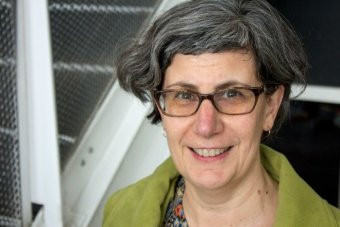
Support for families of children with autism is often falling short of what is recommended by researchers, according to a leader in the field.
Professor Katrina Williams is director of Developmental Medicine at the Royal Children's Hospital (RCH) which provides care for children with a range of disabilities and conditions, including autism spectrum disorder.
She said parents of children with autism often take their child to see a range of experts, with little coordination between them.
This meant some families were being put under unnecessary stress.
"Parents have been rushing from one expert to another rather than having one place that they can go," she told 774 ABC Melbourne's Richard Stubbs.
Professor Williams said researchers now recommend children with autism attend a one-stop-shop, such as that provided by the RCH, where a team of experts can "wrap around" the child.
"The reality often falls far short of what evidence-based recommendations are suggesting," she said.
Professor Williams said the medical system's approach to autism has changed dramatically since she started working in the field in the 1990s.
When she started her PhD in 1998, autism was thought to affect four in every 10,000 Australian children.
"It's up to over one in 100 today," she said.
She said this increase could be attributed to more awareness and wider diagnosis, but also to the emergence of interventions that "make diagnosis useful".
Autism 'not one thing', varies from person to person
Professor Williams said autism is a term used to describe a range of different behaviours and problems to do with social communication.
"It's not one thing," she said.
Sometimes it's just really hard to find the information that you need to make decisions for your child.
Professor Katrina Williams, co-author of Understanding Autism
"The severity of those problems, or even the types of different problems, can vary from person to person."
Children with autism can be disinterested in other people, have difficulty understanding body language and have problems maintaining eye contact.
They can also have an attachment to sameness and a difficulty coping with change.
"What creates the need for a label like autism is those issues are coming together... and they're creating problems," Professor Williams said.
With early intervention, health professionals can work with a child to "replace behaviours that are seen as challenging with more functional behaviours," she said.
She added that there are now many different strategies available to help children with autism, such as "visual schedules" which use images to explain a sequence of events.
Professor Williams has co-authored the recently released Understanding Autism — The Essential Guide For Parents.
She said the book aimed to help parents "make sense of the complexity of autism".
"Sometimes it's just really hard to find the information that you need to make decisions for your child," she said.
While researchers have made significant advances in the diagnosis and treatment of the condition, it is still unclear what causes autism.
Professor Williams said there is increasing evidence many cases of autism have a genetic cause, with heavy metals and immunisation disproven as contributing factors.
"There are certainly many more theories than there are proven causes," Professor Williams said.
from http://www.abc.net.au/news/2015-08-03/a…
Editor's note
Currently, the RCH website (see http://www.rch.org.au/kidsinfo/fact_she…) describes its "wrap around" service like this:
Treatment
Treatment varies according to the needs of each child and the nature of their impairment/s and may include:
- Speech therapy: most children with ASD have communication difficulties and benefit greatly from seeing a speech therapist to help them improve their language and social skills in connecting with others through conversation. Visit www.speechpathologyprivate.com for more information.
- Medication: may be helpful in some specific situations.
- Behaviour therapy: a psychologist may help identify triggers for behavioural outbursts and help the family develop ways to avoid and/or manage these issues.
- Social skills development: a therapist called an 'Applied Behaviour Analysis (ABA) therapist' works one-on-one with children to help them 'learn how to learn' and to develop social and communication skills. Visit www.abia.net.au for more information.
- Occupational therapy: occupational therapists can help children who are hyper-sensitive to hearing, visual input or touch.
- Environmental changes: children with ASD prefer a structured and predictable environment and routine. Visual aids such as picture cards (e.g. a picture of a bed that a child can point to) can be very helpful to improve children's understanding and communication and therefore reduce their stress.
- Special education settings: there are a number of early intervention programs and specialist schools. Visit www.education.vic.gov.au for more information.
- Early intervention: the team or specialist will help to develop an action plan for the family that can include information resources, parent training, strategies for family support and an action plan for the child.